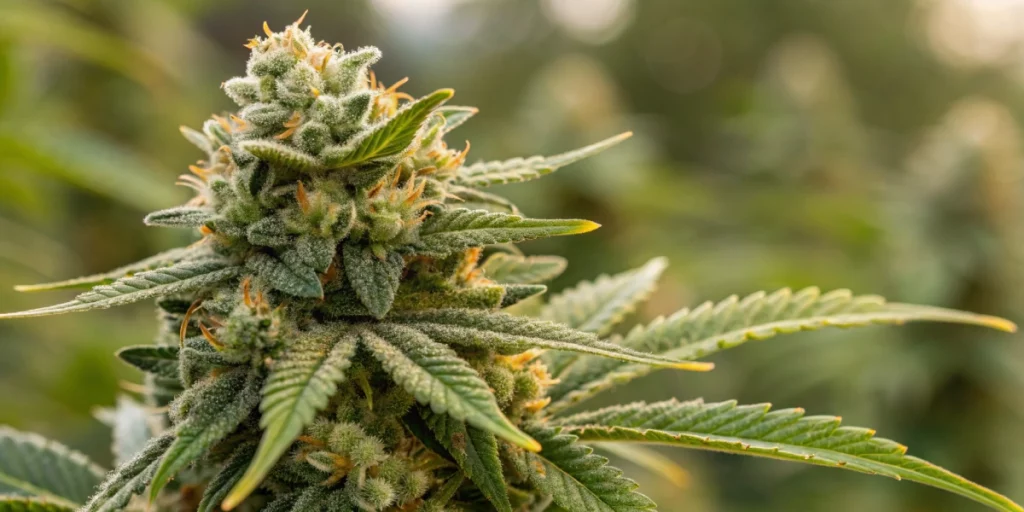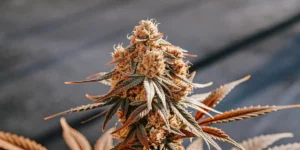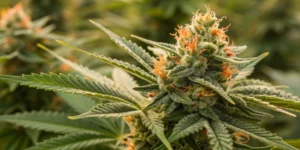Lemon Pie auto strain: Exceptional Genetics and Effects
Origins and Genetics
Lemon Pie auto strain originates from a meticulously selected blend of premium cannabis genetics that infuse the plant with vibrant lemon flavors and robust growth characteristics. Its auto-flowering trait allows it to flower based solely on its age, making it ideal for growers with limited space. The plant shows a compact structure and predictable growth pattern, ensuring consistent quality and impressive yields every cycle.
The genetic makeup of Lemon Pie auto strain has been refined over several generations to create a strain that combines the best traits of both indica and sativa varieties. This stable heritage provides a foundation for vigorous growth and high resin production, appealing to both recreational and medicinal users who seek reliable and flavorful buds without complicated cultivation.
Effects and Potency
Lemon Pie auto strain delivers a balanced high that uplifts the mind while gently relaxing the body. The moderate to high THC levels create a clear-headed buzz that promotes creativity and focus, making it suitable for daytime activities. Users report a smooth, satisfying effect that never feels overwhelming, ensuring each session is both energizing and calming.
Furthermore, the sensory profile of Lemon Pie auto strain is unforgettable, as the buds emit a tangy lemon aroma complemented by subtle hints of sweetness and earth. This harmonious combination of potent effects and a bright, citrus flavor makes the strain a favorite among cannabis enthusiasts who want both an enjoyable high and a memorable taste.
Environmental Requirements for Growing Lemon Pie auto strain
Setting Up the Growing Cannabis Space
To successfully cultivate Lemon Pie auto strain, start with a well-organized grow space. Choose a dedicated room, grow tent, or small indoor setup that offers proper ventilation, controlled lighting, and stable temperature and humidity. Equip the space with essential tools such as fans, carbon filters, and timers to maintain an ideal environment. A tidy and efficiently arranged space minimizes stress on the plant and helps achieve consistent, high-quality bud development.
Every element in the grow space must work together to maximize light distribution and airflow, making routine tasks like watering and monitoring much simpler. By setting up your space with precision, you create a foundation that supports vigorous growth and lays the groundwork for a bountiful harvest of Lemon Pie auto strain.
Temperature and Humidity
During the vegetative stage, maintain temperatures between 70°F and 80°F to promote robust growth, while slightly lower temperatures during flowering enhance resin production. Keep humidity levels around 50–60% initially and reduce them to 40–50% during flowering to prevent mold and mildew. Stable conditions help ensure efficient nutrient uptake and steady growth.
Indoor Cannabis Cultivation
Advantages of Growing Indoors
Indoor cultivation offers complete control over environmental conditions, which is especially beneficial for Lemon Pie auto strain. Growing indoors protects the plant from unpredictable weather and pests, and allows you to tailor light, temperature, and humidity precisely for optimal bud production. This precise management leads to uniform, high-quality buds even in small spaces, making it ideal for urban growers.
Furthermore, indoor growing enables year-round production regardless of external weather conditions. With a controlled environment, you can adjust every variable ensuring that Lemon Pie auto strain consistently produces robust, resinous buds that meet high standards of quality and potency.
Lighting Needs
For indoor cultivation, proper lighting is essential to maximize bud formation. Full-spectrum LED or HPS lights provide the energy required for vigorous vegetative growth and dense bud development during flowering. Position the lights at an optimal distance from the canopy to avoid heat stress while ensuring even light distribution across the entire plant. This setup promotes efficient photosynthesis and helps Lemon Pie auto strain reach its full potential.
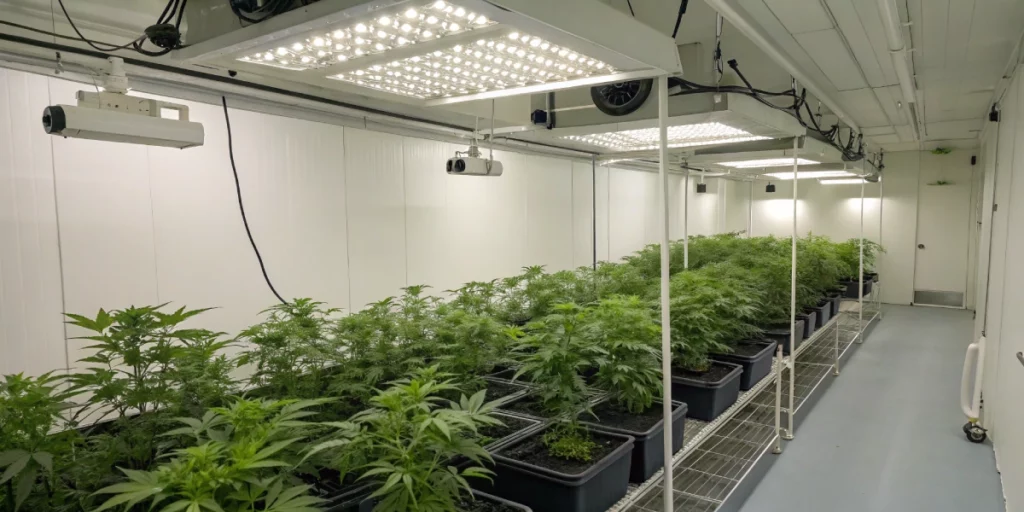
Outdoor Cannabis Cultivation
Best Conditions for Outdoor Growth
Outdoor cultivation of Lemon Pie auto strain thrives under sunny, warm conditions with ample natural airflow. Choose a location that receives at least six hours of direct sunlight daily, as natural light enhances terpene production and intensifies the strain’s signature lemon flavor. Ensure that the soil is well-draining and enriched with organic matter to support vigorous growth and high yields.
In addition, select a site that provides protection from extreme weather such as heavy winds or intense rain, while still receiving plenty of sunlight. With careful site selection and proper environmental management, outdoor growers can achieve impressive results that rival indoor setups, producing high-quality, aromatic buds.
Growing Season
Planting should be done in early spring when temperatures are reliably warm and the risk of frost is minimal. This timing allows Lemon Pie auto strain to benefit from long, sunny days during the summer, with the growing season extending into early fall before cooler weather sets in. A well-planned growing season maximizes light exposure and warmth, leading to vigorous growth and abundant bud production.
Monitoring local weather patterns and adjusting planting schedules accordingly ensures that the plant develops under optimal conditions, resulting in a robust and bountiful harvest that fully showcases the strain’s potential.
Advantages of Growing Lemon Pie auto strain
Lemon Pie auto strain offers significant benefits, including its rapid growth cycle and ease of cultivation in small spaces. Its auto-flowering trait simplifies the growing process, allowing for multiple cycles in a single year. This efficiency makes it ideal for busy cultivators and urban growers, as it consistently produces high-quality, aromatic buds without extensive effort.
The strain’s genetic stability and predictable performance ensure that every harvest is impressive. Its compact growth habit and high yield potential maximize limited growing space, making Lemon Pie auto strain a practical and rewarding choice for both new and experienced growers.
Problems in Cultivating Lemon Pie auto strain
Overwatering
Overwatering can damage the delicate root system of Lemon Pie auto strain, leading to root rot and fungal infections that stunt growth and reduce yield. It is essential to let the soil dry slightly between waterings and to use containers with proper drainage so the plant can develop a healthy root system. Adjust your watering schedule according to the plant’s needs rather than following a rigid routine.
Pest Infestations
Pests such as spider mites, aphids, and thrips can quickly compromise the health of Lemon Pie auto strain if not managed properly. Regular inspections and the use of organic pest control measures are necessary to keep these threats under control. Early detection and prompt treatment help prevent infestations from spreading and ensure the plant remains robust and productive throughout its cycle.
Similar Strains
Lemon Skunk
Lemon Skunk is featured on buycannabisseeds.net as a popular choice for growers seeking a vibrant, citrus-forward strain. This auto-flowering variety boasts a strong lemon aroma combined with subtle skunky undertones and produces dense, resinous buds. Its rapid flowering cycle and compact growth make it ideal for limited spaces, delivering a clear, uplifting high that mirrors the refreshing qualities of Lemon Pie auto strain.
Lemon Haze Auto
Lemon Haze Auto appears on buycannabisseeds.net as another excellent option for those who love a zesty, invigorating citrus profile. Known for its bright, tangy lemon flavor enhanced by a light haze aroma, this strain offers a balanced high that energizes the mind while gently relaxing the body. Its auto-flowering nature simplifies cultivation, making it perfect for urban gardens and small grow spaces.
Purple Lemonade Auto
Purple Lemonade Auto is also available on buycannabisseeds.net and is well-regarded for its refreshing, sweet citrus flavor with a hint of tanginess. This strain produces dense, aromatic buds and a balanced, clear-headed high that appeals to both recreational and medicinal users. Its fast flowering cycle and compact growth habit make it a reliable alternative for cultivators seeking an equally vibrant citrus experience as found in Lemon Pie auto strain.
Week-by-Week Growth Plan for Lemon Pie auto strain
Week 1 – Germination and Seedling Stage
Begin by soaking Lemon Pie auto strain seeds in water for several hours, then place them between moist paper towels in a warm, dark environment until taproots emerge. Carefully transfer the seeds into small pots with a well-draining medium while maintaining consistent warmth and humidity to establish a robust root system and lay a strong foundation.
Week 2 – Early Seedling Growth
In week two, the seedlings start showing their first true leaves and gradually increase in size. Provide gentle, indirect light and maintain a steady, moist soil environment without overwatering. This period is essential for building the initial strength and resilience needed for rapid development in later stages.
Week 3 – Continued Seedling Development
During week three, the seedlings grow larger and develop an extensive root system while additional leaves emerge. Increase light exposure gradually and maintain a balanced watering schedule to support steady, healthy growth. This stage is critical for reinforcing the plant’s structure in preparation for the upcoming vegetative phase.
Week 4 – Vegetative Growth Begins
At the start of week four, Lemon Pie auto strain enters the vegetative phase, showing noticeable increases in size and vigor. Leaves expand and stems thicken as the plant establishes a solid framework. Adjust light intensity and begin a structured watering schedule with a low dose of nitrogen-rich fertilizer to stimulate robust growth.
Week 5 – Accelerated Vegetative Growth
In week five, the vegetative growth accelerates with abundant foliage and stronger branches. Continue regular feeding and steady watering while using low-stress training techniques to shape the canopy for even light distribution. This rapid expansion sets the stage for a resilient structure that will support dense bud formation.
Week 6 – Preparing for Flowering
During week six, early signs of flowering appear as small bud formations emerge and leaves show subtle color changes. Adjust the nutrient regimen by reducing nitrogen and increasing phosphorus and potassium to support bud initiation. Maintain low-stress training and monitor environmental conditions closely to ensure the plant remains stress-free.
Week 7 – Transition to Flowering
In week seven, the plant transitions to flowering as indoor growers switch to a 12-hour light and 12-hour dark cycle. Small buds begin to form as energy shifts from vegetative growth to bloom production. Nutrient delivery is adjusted to favor bloom-specific supplements, ensuring a smooth transition into flowering.
Week 8 – Early Flowering
By week eight, the early flowering stage becomes pronounced as buds form and increase in density. The plant channels energy into thickening bud clusters while nutrient delivery is fine-tuned to favor phosphorus and potassium. Consistent monitoring ensures that the buds develop optimally without any stress.
Week 9 – Mid-Flowering
In week nine, buds become more prominent as resin production increases and trichomes begin to form, shifting from clear to milky. Nutrient management is carefully adjusted to support robust bud development while preventing nutrient burn, with regular inspections ensuring ideal conditions during this critical stage.
Week 10 – Bud Development
By week ten, the buds are well-formed and continue to mature in both density and size. The plant’s resin production intensifies and the aromatic profile deepens, adding complexity to the flavor. Maintaining careful nutrient management and stable conditions ensures every bud reaches its optimal potential.
Week 11 – Late Flowering
During week eleven, the plant enters the late flowering phase as trichomes begin to shift further and hint at amber tones. Buds become denser and more resinous, signaling the approaching optimal harvest window. Continue balanced nutrient delivery and maintain stable conditions to support the final burst of bud maturation.
Week 12 – Harvesting Time
In week twelve, Lemon Pie auto strain is ready for harvest as trichomes display a mix of milky and amber hues and buds appear dense and richly resinous. Carefully cut the plant, trim excess foliage, and hang the branches in a dark, well-ventilated area to dry for 7–10 days, preserving flavor and potency for curing.
Week 13-14 – Curing the Buds
During weeks thirteen and fourteen, focus on curing the harvested buds to enhance flavor and potency. Once the buds are properly dried, transfer them into airtight glass jars and open the jars daily during the first week to release excess moisture, gradually reducing frequency. This careful curing process stabilizes the buds and refines their profile, resulting in a premium final product that reflects the dedicated care throughout the growth cycle.
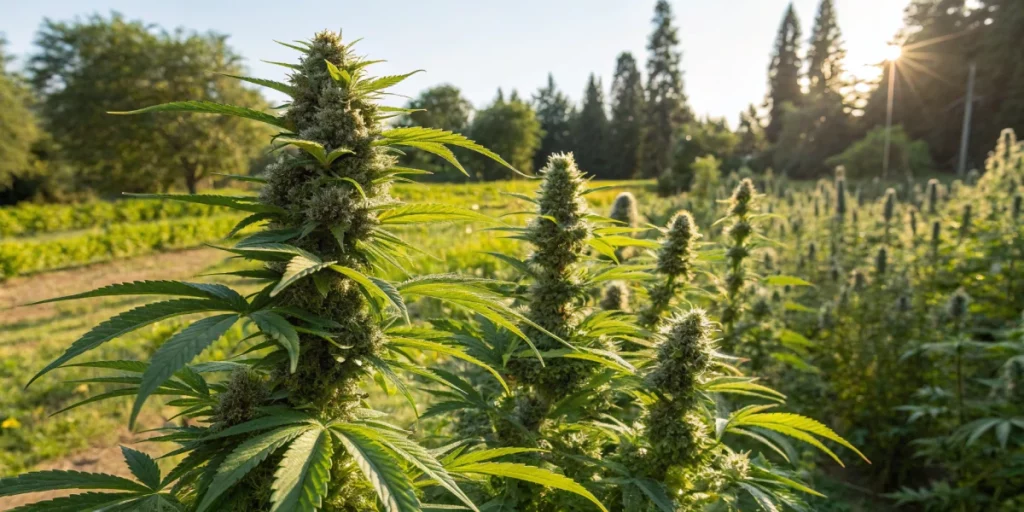
FAQs about Lemon Pie auto strain
What is the typical THC content of Lemon Pie auto strain?
Lemon Pie auto strain typically contains THC levels ranging from 16% to 24%. This moderate potency ensures a balanced high that combines uplifting mental clarity with gentle body relaxation. The strain’s consistent cannabinoid profile is maintained through precise breeding and careful cultivation practices. Each harvest reliably delivers buds that are both potent and flavorful, making it an excellent choice for users seeking a satisfying experience.
How long does it take for Lemon Pie auto strain to flower?
Lemon Pie auto strain typically flowers within eight to ten weeks after transitioning to a 12/12 light cycle. This short flowering period enables rapid turnover and consistent yields, making it ideal for growers with limited space. Its auto-flowering trait simplifies cultivation, ensuring a smooth shift from vegetative growth to bloom. Each cycle produces buds with a refreshing citrus profile that satisfies novice and experienced cultivators.
What flavor profile can I expect from Lemon Pie auto strain?
Lemon Pie auto strain offers a distinctive flavor profile dominated by bright, tangy lemon notes with subtle hints of sweetness and herbal undertones. The aromatic buds deliver a crisp, invigorating taste that awakens the senses and creates a lasting impression on the palate. This balanced flavor complements its uplifting effects, ensuring every session is smooth, and enjoyable for users seeking a vibrant citrus experience.

